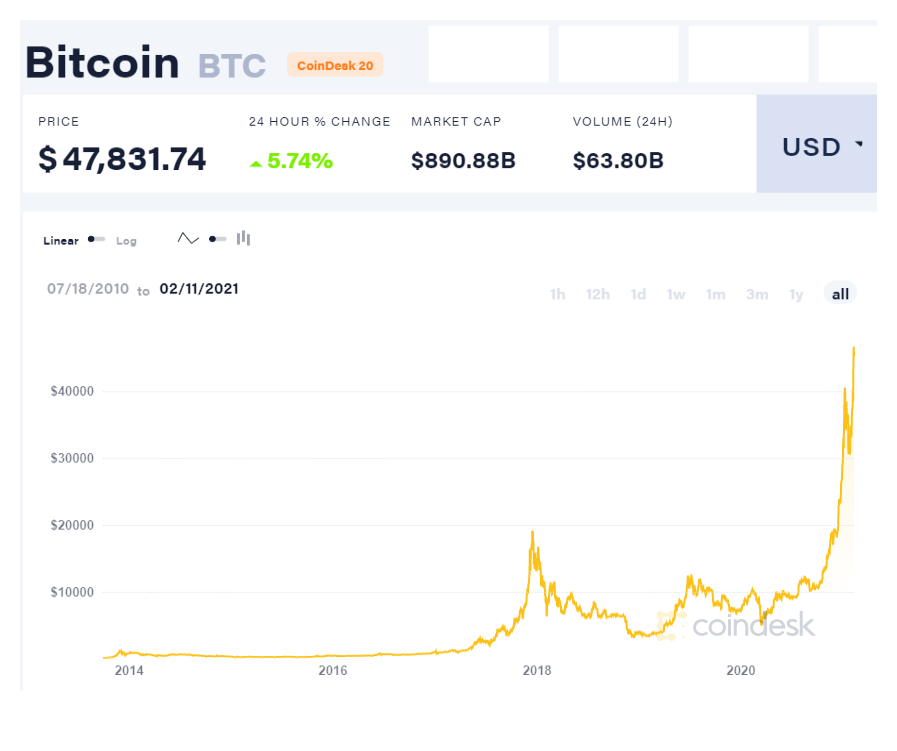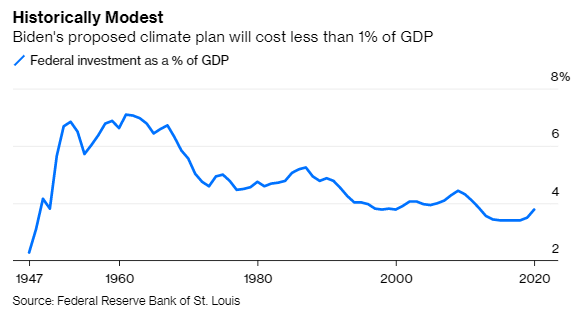
1/Today's Substack post is about the U.S. vaccination effort.
It's not good enough. BUT, it's better than almost the entire rest of the world!
And I don't think Americans have collectively realized this fact yet.
noahpinion.substack.com/p/the-us-vacci…
It's not good enough. BUT, it's better than almost the entire rest of the world!
And I don't think Americans have collectively realized this fact yet.
noahpinion.substack.com/p/the-us-vacci…
2/This is not yet enough vaccination.
New variants are spreading, some more transmissible, some more antibody-resistant. To outrun them, we need to keep ramping up both production and distribution as quickly as possible.
bloomberg.com/graphics/covid…
New variants are spreading, some more transmissible, some more antibody-resistant. To outrun them, we need to keep ramping up both production and distribution as quickly as possible.
bloomberg.com/graphics/covid…
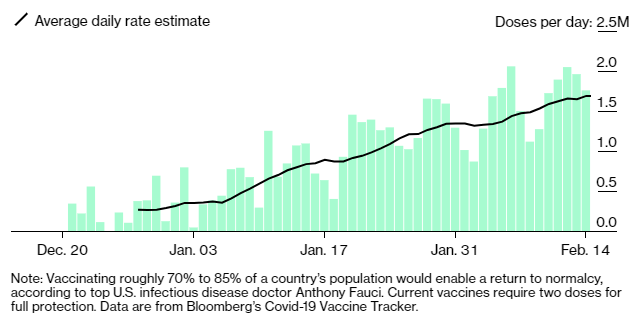
3/BUT, while it's not good enough yet, the U.S. is ahead of nearly every country in the world!
Israel is tops, as everyone knows. But the only sizeable country ahead of the U.S. is the UK.
Israel is tops, as everyone knows. But the only sizeable country ahead of the U.S. is the UK.
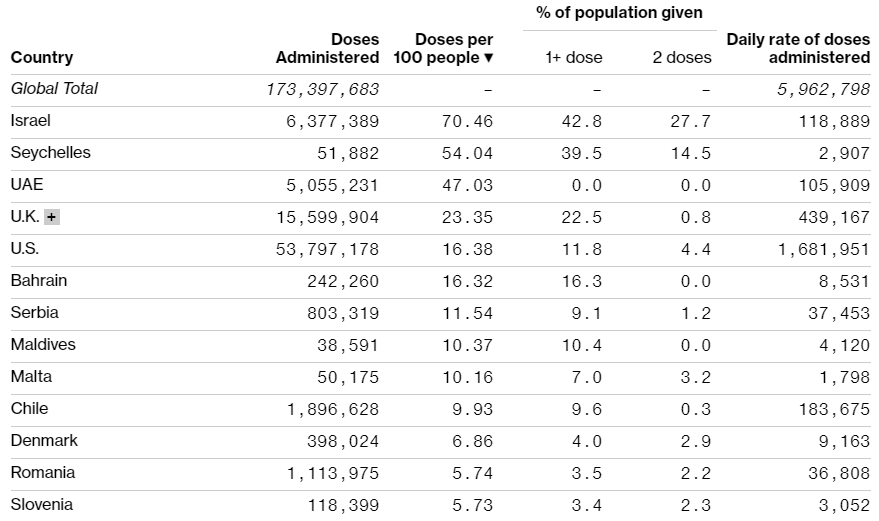
4/But while the UK is ahead by the most commonly used measures (first doses and total doses), the U.S. is ahead in terms of how many people have received BOTH doses.
The UK, which is intentionally giving out only single doses for now, isn't even on the chart.
The UK, which is intentionally giving out only single doses for now, isn't even on the chart.
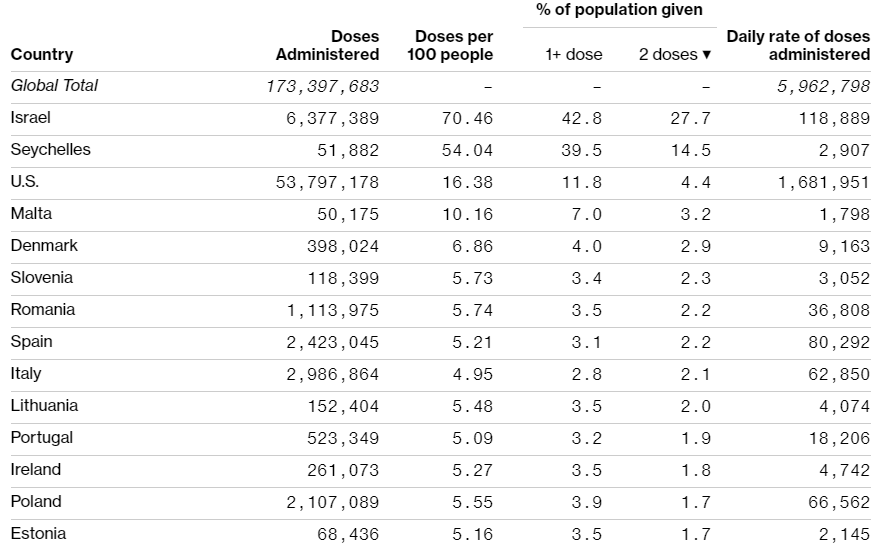
5/That could end up being a problem, as a recent study shows that BOTH doses of the Pfizer vaccine are required to generate a robust antibody response against the South Africa variant.
theguardian.com/world/2021/feb…
theguardian.com/world/2021/feb…
6/Anyway, back to what the U.S. is doing right. Though we stumbled in our initial distribution, our distribution has basically kept pace with our production ramp-up. That means we're being at least somewhat efficient. 

7/But the biggest reason we're ahead of almost the entire world is that the rest of the world has mostly stumbled in various ways.
Here's an article about the EU's vaccination travails.
politico.eu/article/europe…
Here's an article about the EU's vaccination travails.
politico.eu/article/europe…
8/And Asian countries, despite their vaunted public health systems, have not been fast to vaccinate either.
time.com/5929657/asia-v…
time.com/5929657/asia-v…
9/China, which has been praised by many as a model of effectiveness during the pandemic, has badly lagged the U.S. even though they got a big head start on vaccine development!
wsj.com/articles/china…
wsj.com/articles/china…
10/The U.S. and U.S.-German mRNA vaccines have extremely high efficacy. Higher than any other vaccines in the world! (Though Russia's vaccine appears to be a close second. Go Russia!)
11/But perhaps most importantly, the mRNA vaccines can be modified much more quickly to address resistant strains.
That's going to be VERY important if a strain escapes the vaccines, and it's going to be helpful for fighting the South Africa variant.
cleveland.com/coronavirus/20…
That's going to be VERY important if a strain escapes the vaccines, and it's going to be helpful for fighting the South Africa variant.
cleveland.com/coronavirus/20…
12/mRNA vaccines are a marvel of modern science. Their development involved a very far-sighted, long-term process of government research funding, corporate investment, and entrepreneursip.
statnews.com/2020/11/10/the…
statnews.com/2020/11/10/the…
13/Of course, mRNA vaccines are a complex technology with many inventors, but spare a moment to say "thank you" to @kkariko, who did as much or more than anyone to create this technology (which now may be used against cancer and many other diseases!).
cnn.com/2020/12/16/us/…
cnn.com/2020/12/16/us/…
14/So who gets the credit for the U.S. relative vaccination success? Regarding vaccination development and pre-purchase, the Trump administration actually did well for once. But they stumbled when it came time for distribution.
politico.com/news/2021/01/1…
politico.com/news/2021/01/1…
16/But crediting Presidents is completely inadequate. This was a huge group effort, involving heroic amounts of work cooperation, sacrifice, and creativity across many walks of life -- government, business, academia, and just regular old volunteers.
This is a SYSTEM success.
This is a SYSTEM success.

17/And the success of the American system has astonished me. Our failures with testing, lockdown, and PPE seemed like a harbinger that we were in steep decline, just a year ago! Yet here we are, racing ahead on vaccines.
bloomberg.com/opinion/articl…
bloomberg.com/opinion/articl…
18/It seems like I was wrong. There is a broad and deep reservoir of resilience and strength in the American system.
I should have remembered the Space Race, where we got off to a slow start but came from behind to win it.
I should have remembered the Space Race, where we got off to a slow start but came from behind to win it.
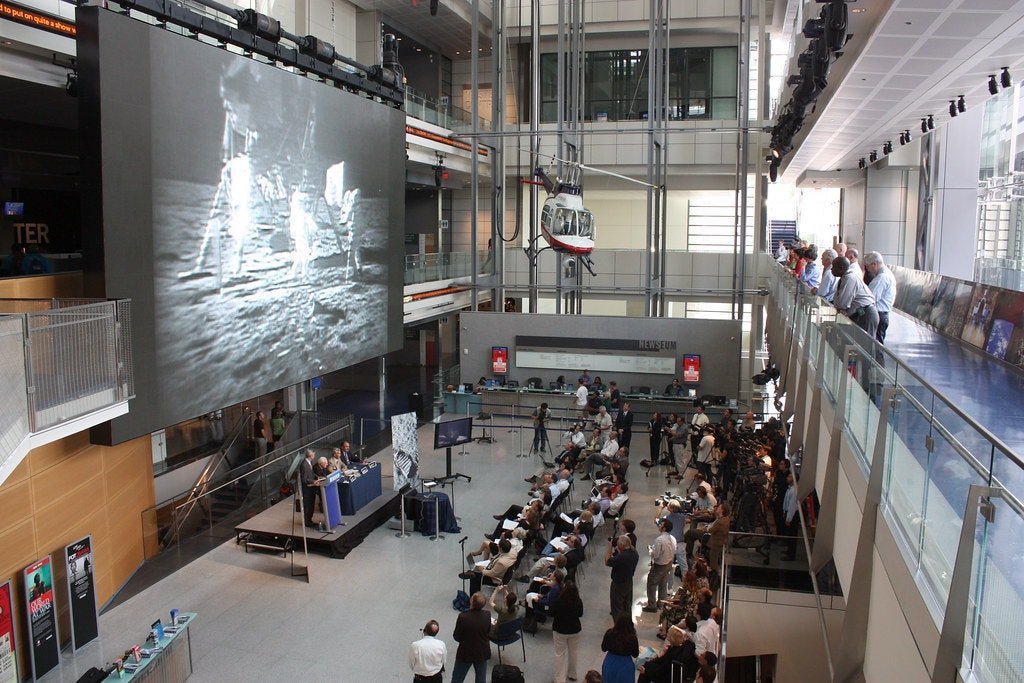
19/America has this thing where we scream and scream about how royally screwed we are, all while we're racing to catch up.
And once we do catch up...watch out.
And once we do catch up...watch out.

20/Anyway, there is much to be improved about our vaccination effort still. We should still be deeply dissatisfied and working hard to make things better.
But we should also recognize our fundamental strength. Don't count America out!!
(end)
noahpinion.substack.com/p/the-us-vacci…
But we should also recognize our fundamental strength. Don't count America out!!
(end)
noahpinion.substack.com/p/the-us-vacci…
Oh, and if you like this sort of writing, make sure to sign up for my Substack's free email list!
noahpinion.substack.com
noahpinion.substack.com
• • •
Missing some Tweet in this thread? You can try to
force a refresh


